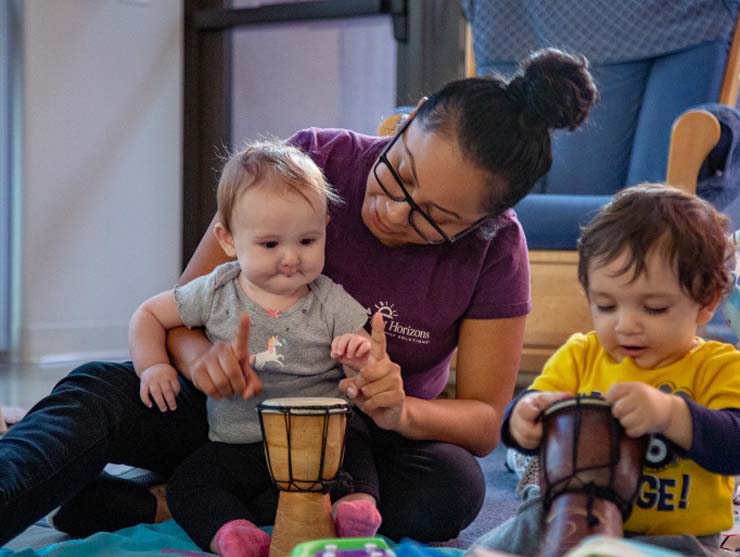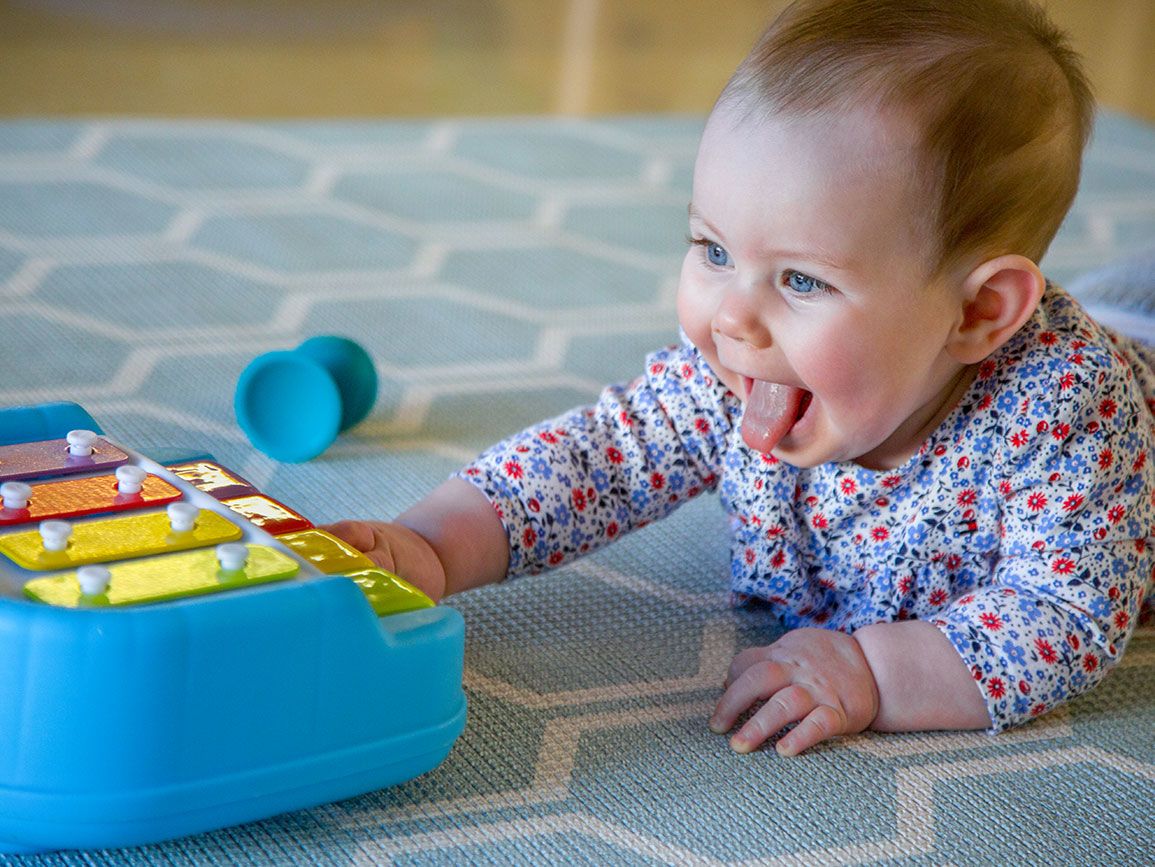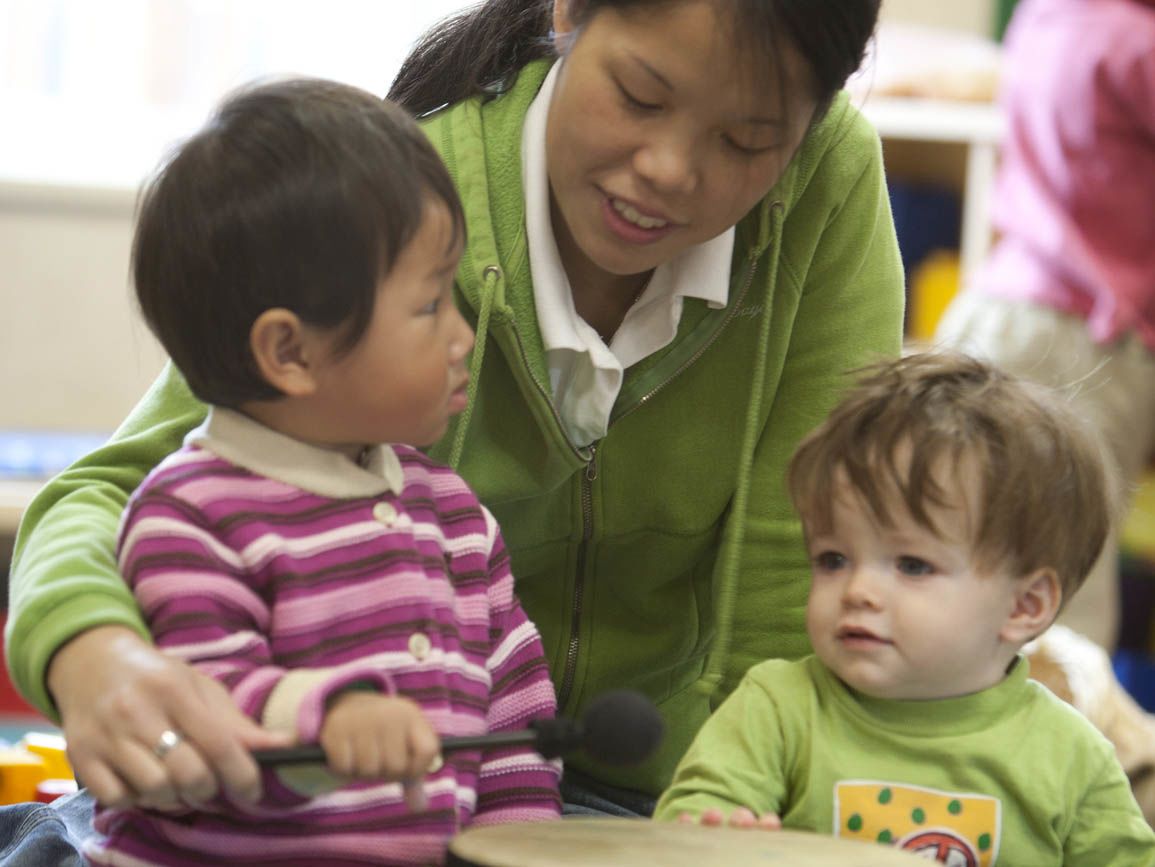Parents instinctively use music to calm and soothe children, to express love and joy, and to engage and interact. Parents can build on these natural instincts by learning how music can positively impact child development, improve social skills, and benefit children of all ages.
MUSIC AND THE BRAIN: THE BENEFITS OF MUSIC
A 2016 study at the University of Southern California’s Brain and Creativity Institute found that musical experiences in childhood can actually accelerate brain development, particularly in the areas of language acquisition and reading skills. According to the National Association of Music Merchants (NAMM Foundation), learning to play an instrument can improve mathematical learning and even increase SAT scores.
But academic achievement isn’t the only benefit of music education and exposure. Music ignites all areas of child development and skills for school readiness, including intellectual, social-emotional, motor, language, and overall literacy. It helps the body and the mind work together. Exposing children to music during early development helps them learn the sounds and meanings of words. Dancing to music helps children build motor skills while allowing them to practice self-expression. For children and adults, music helps strengthen memory skills.
In addition to the developmental benefits, music brings us joy. Just think about listening to a favorite song in the car with the window down on a beautiful day.
MUSIC GAMES FOR KIDS OF ALL AGES
Try these activities and games with your children to experience the pleasure and learning that music brings.
Infants and Music: Infants recognize the melody of a song long before they understand the words. Quiet background music can be soothing for infants, especially during sleep time. Sing simple, short songs to infants. Try making up one or two lines about bathing, dressing, or eating to sing to them while you do these activities.
Toddlers and Music: Toddlers love to dance and move to music. The key to toddler music is repetition, which encourages vocabulary growth. Silly songs make toddlers laugh. Try singing a familiar song and inserting a silly word in place of the correct word, like “Mary had a little spider” instead of lamb. Let children reproduce rhythms by clapping or tapping objects.Preschoolers and Music: Toddlers love to dance and move to music. The key to toddler music is repetition, which encourages vocabulary growth. Silly songs make toddlers laugh. Try singing a familiar song and inserting a silly word in place of the correct word, like “Mary had a little spider” instead of lamb. Let children reproduce rhythms by clapping or tapping objects.
School-Age Children and Music: Toddlers love to dance and move to music. The key to toddler music is repetition, which encourages vocabulary growth. Silly songs make toddlers laugh. Try singing a familiar song and inserting a silly word in place of the correct word, like “Mary had a little spider” instead of lamb. Let children reproduce rhythms by clapping or tapping objects.
There is no downside to bringing children and music together through fun activities. Children enjoy the benefits of music from the moment they are born. From the pure pleasure of listening to soothing sounds and rhythmic harmonies, to gaining new language and social skills, music can enliven and enrich the lives of children and the people who care for them.




